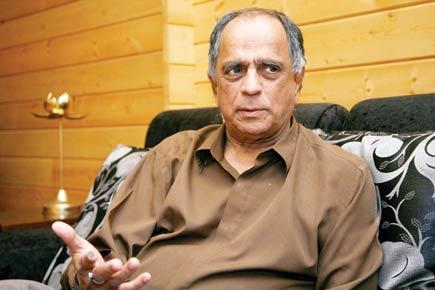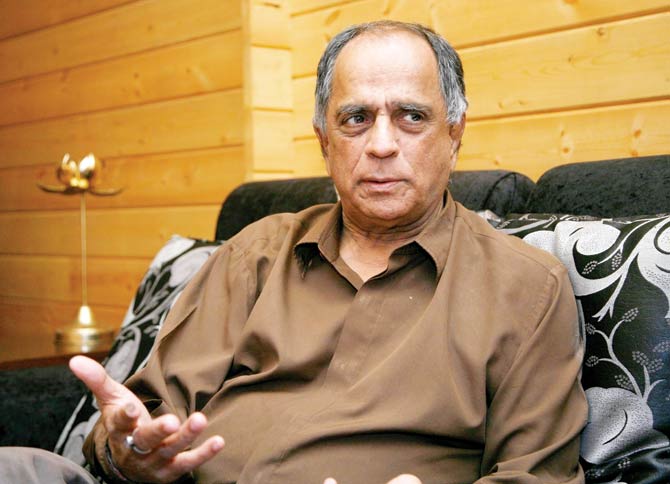CBFC chief Pahlaj Nihalani says, left to him, he wouldn’t have allowed the Shyam Benegal-led committee to come in

Pahlaj Nihalani
Pahlaj Nihalani’s 20-month tenure as the chairperson of the Central Board of Film Certification (CBFC) has been rife with controversy and it would be safe to say that he has made more enemies than friends in his current capacity. In an interview with hitlist, Nihalani opens up about the controversies that he has courted and accusations that are flung at him every other day. Edited excerpts from the chat:
ADVERTISEMENT

Q. Did you feel unnecessarily vilified when you were blamed as censor copies of Udta Punjab and Great Grand Masti were leaked online?
A. I am a government servant doing a job assigned to me. I don’t care what people think about me.
I kept calm because I was certain that the CBFC had nothing to with the leaks. I don’t blame the producers; CBFC has become a
soft target.
Q. Do you feel DCP, an encrypted format for submitting movies, will help filmmakers and curb piracy?
A. It is password-protected, so the chance of a leak reduces manifolds. The copy is guarded even if it lands in the wrong hands. It’s cost-efficient too. Instead of Rs 80,000 for the earlier format, producers will have to spend only Rs 30,000 for DCP. If there’s better technology, we must shift to it instead of resisting change. In any case, our job is to watch films; a producer’s job is to protect his/her film.
Q. What’s your take on the recommendations of Shyam Benegal-led revamp committee?
A. If it were in my hands, there would’ve been no need to bring in the Shyam Benegal committee. The problem is simple — an old law (The Cinematograph Act, 1952) is unable to meet demands of the new wave of cinema. An elaborate grading system will reduce our dilemmas. Let the new Act be passed. In any case, total freedom of expression is a myth; no country in the world can allow it. To protect the country’s culture and ethos, some restrictions are necessary.
Q. Are you saying you are in favour of censorship?
A. All I am saying is if the government wants to protect the culture, we must adhere to laws laid by them. Else, there would be utter anarchy. Personally, I am in favour of controlled censorship so that no one can damage our values and culture. At my position, individual opinions don’t matter and cannot be instrumental in making decisions. Laws are supreme and we will follow the guidelines of the new Act to the T, just like we are following old rules now. Ultimately, our lawmakers know what’s best for this country’s cinema.
Q. You stormed out of a recent CBFC meeting following disagreement with other members.
A. The Board doesn’t authorise me to speak about my colleagues or our issues so irresponsibly. I am aware that a lot of them do, but I refuse to be like them. The annual Board meeting saw a lot of debates and a few disagreements but whatever we have decided for the coming year is in the industry’s larger interest. CBFC stands united when it comes to carrying out our responsibilities.
Q. Your tweet in support of A Flying Jatt took everyone by surprise. Did it have anything to do with your son, Chirag, working for Balaji Motion Pictures (the film’s producer)?
A. Anything I post from my personal account are my own views. I am a professional and so is Chirag. The decisions at CBFC cannot depend on my son’s films. We’ve have been harsh to Balaji’s previous films — Kya Kool Hain Hum 3 and Udta Punjab. My tweet for A Flying Jatt shouldn’t be seen as a bid to salvage relations with the production house or create a favourable situation for my son at his workplace.
Q. How do you look at your tenure at the CBFC so far?
A. I feel I have achieved what I set out to. I have been going to CBFC since 1967, when I first stepped into the industry. I am proud that the Board functions with more transparency, there is more accountability and no corruption.
 Subscribe today by clicking the link and stay updated with the latest news!" Click here!
Subscribe today by clicking the link and stay updated with the latest news!" Click here!






